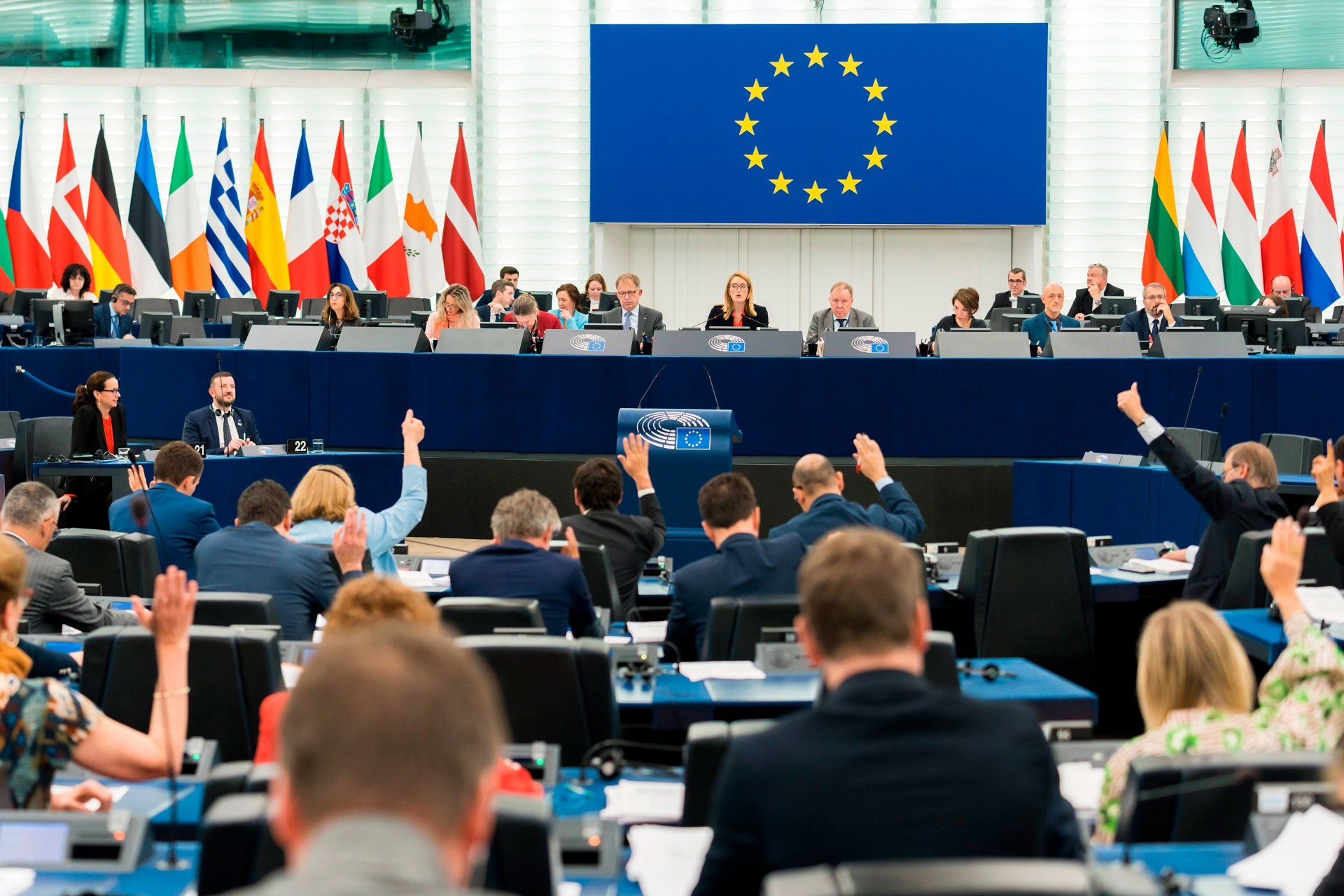The European Parliament has reiterated its call to Spain to carry out a "full, fair and effective" investigation of its spyware espionage cases, especially the 47 cases revealed in the Catalangate study for which no information has been offered. The MEPs, in this Thursday's plenary session, voted to adopt the recommendations made by the committee which for the last year and a half has addressed cases of espionage within the EU using software such as Pegasus, with 411 votes in favour; 97 against and 37 abstentions. In the section on recommendations to Spain, the MEPs call on the authorities to clarify the espionage against the 65 people in pro-independence circles who were spied on, including 47 cases which have not been recognized by Spain's National Intelligence Centre (CNI). For the other 18 persons whose espionage has been admitted by the CNI it insists that they must be given access to the judicial authorization under which they were spied on. The text also urges the Spanish authorities to cooperate with the courts to give victims "legal redress" and ensure that there are "impartial" "judicial inquiries" carried out without delay and with sufficient resources.
Two types of espionage in Spain
Also among the five recommendations from the European chamber to the Spanish authorities, is that Europol by invited into Spain's investigations so that its "technical expertise" can be employed. Aside from these specific recommendations for Spain, the document sets out the two types of espionage that it has evidence of in Spain: first, it mentions the targeting of three members of the Spanish government, then explains the massive scale espionage labelled as 'Catalangate' by the Canadian research centre Citizen Lab. This matter, it says, "includes 65 targeted persons, including political figures from the government of Catalonia, members of the pro-Catalan independence movement, MEPs, lawyers, academics and civil society actors." The report notes that, in May 2022, the Spanish authorities admitted to targeting 18 persons with court authorization, "though they have so far not disclosed the warrants or any other information, invoking national security when accounting for the use of spyware surveillance in Spain." Finally, the Pegasus Committee report stresses that "47 other persons have also been allegedly targeted" but no information on them has been received other than from the Citizen Lab report.
Thus, the report strongly condemns the espionage carried out by EU member state governments and institutions on members of the opposition, judges, prosecutors, lawyers and journalists, among others. Spain, Poland, Hungary, Greece and Cyprus were the countries where specific cases of spyware abuse by authorities were found to have occurred and investigated, although it also says the situation in other countries leaves "reason for concern". In this regard, the MEPs note that the EU's governance framework is "inadequate" to respond to "the attacks on democracy, fundamental rights and the rule of law" that the espionage involves.
Lack of cooperation from governments, the Council and the European Commission
In this Thursday's plenary session, the European chamber also expressed its concern about the "reluctance" shown by member states to investigate espionage and notes "slow progress and lack of transparency in judicial investigations" into the abuse by governments of this spyware. In addition, the MEPs denounced the lack of cooperation that they had received from many arms of the EU: the member state governments, the European Council and the European Commission. "Neither the member states nor the Council nor the Commission seem to be interested in maximizing efforts to fully investigate abuse in espionage," they criticized.
"If we accept this, then the European Union is dead": Pegasus committee rapporteur Sophie In't Veld insists on the need to stop spyware abuse from within the EU in Wednesday's press conference.
In this Thursday's vote, MEPs rejected the proposal for a moratorium on the use of spyware while regulation is established, an initiative that was part of an amendment presented by the Greens. Another of the measures that was overturned was far-right Vox's attempt to call the events of 2017 in Catalonia a "coup d'état" and to question Citizen Lab's research. With five amendments, the Spanish extreme rightists also sought to amend the report's call for the 18 recognized victims of Catalangate to be given access to the judicial authorizations that permitted their targeting, as well as suppressing the demand for reform of the CNI and the call to add Europol to the investigations.

